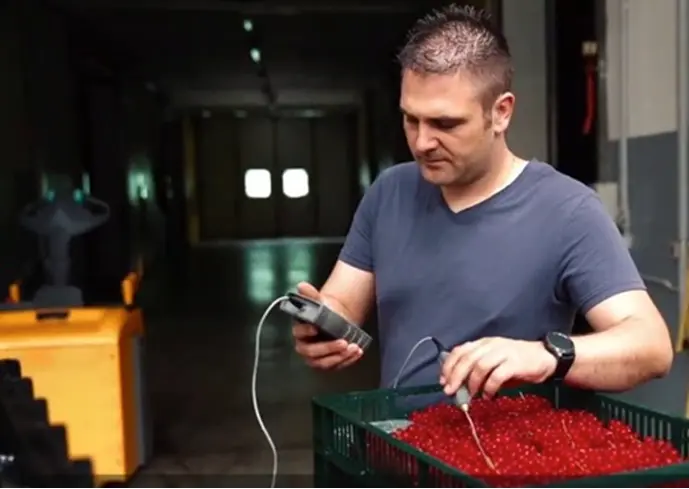From the skies above the orchards of Michigan comes a high-tech ally for the protection of crops: the spraying drone. Confirming the sector's growing interest was the drone-focused symposium held last December during the Great Lakes Fruit, Vegetable and Farm Market EXPO, where Mike Reinke – a viticulture specialist from Michigan State University (MSU) – shared the latest developments on this rapidly evolving technology.
Reinke, who began testing drones in 2022 for the application of crop protection products on grapes and specialty fruit, now works with advanced models like the XAG P100 Pro, provided on loan by Pegasus Robotics, the U.S. distributor of the Chinese manufacturer of the same name. His trials, funded by the USDA Specialty Crop Block Grant Program, the Michigan State Horticultural Society, and the Michigan Cherry Committee, show promising results: the effectiveness of drones proved to be equal to that of traditional sprayers, both in vineyards and orchards.
“There are no substantial differences in disease and insect control,” Reinke explained.
Fast, autonomous and precise
The drones used range from 1 to 3 meters in wingspan, with a payload capacity of up to 200 pounds (over 90 kg) and tanks that can hold up to 68 liters of liquid. The P100 Pro, for example, has a 57-liter capacity. The latest models are equipped with rotary atomizers, allowing operators to adjust droplet size and flow without changing nozzles, offering greater flexibility than older versions.
Fully autonomous in flight, the drones follow preprogrammed routes, allowing operators to focus more on planning than on navigation.
A field comparison
In 2024, during a trial conducted at the Southwest Michigan Research and Extension Center, it was found that a tractor took 5.2 hours to perform eight pesticide applications on a 2.5-acre field. A drone performed the same function in 3.4 hours. An operational efficiency that could make all the difference, especially at the end of the season or for localised interventions.
In collaboration with entomologist Rufus Isaacs, Reinke also tested the effectiveness of drones in controlling the grape berry moth. This lepidopteran, particularly active close to harvest, tends to invade vineyards from the edges. Using drones for perimeter treatments showed effective results in preventing the pest's entry, offering a practical solution without the need to reactivate heavy equipment.
A potential yet to be explored
Even in cherry, pear, and apple orchards, drones are attracting the attention of researchers. Emily Lavely, an arboriculture educator at MSU, conducted demonstrations on variable-density plantings at the West Central Michigan experiment station. According to Lavely, drones can be ideal for targeted applications, especially where tall canopies make ground-based interventions difficult.
During 2025, a new project will involve the use of drones for the targeted treatment of tart cherry, focusing on the upper part of the canopy where initial infections of cherry leaf spot (cylindrosporiosis) develop, which are difficult to reach with traditional sprayers.
Conclusion
Spraying drones are not yet a full replacement for ground sprayers, but they are establishing themselves as a strategic tool for precision agriculture, with clear advantages in terms of speed, accessibility, and versatility. The current challenge is to optimize operational protocols, ensure economic efficiency, and train operators. But one thing is certain: agriculture is reaching new heights.
Text and image: goodfruit.com
Cherry Times - All rights reserved










